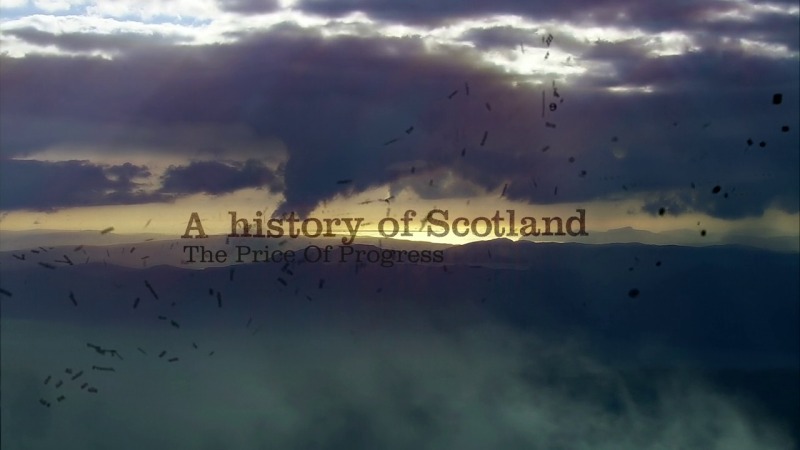A History of Scotland episode 8 – The Price of Progress: Through the winning and losing of an American empire and the impact of the Scottish Enlightenment, Neil Oliver reveals how in the second half of the 18th century Scotland was transformed from a poor northern backwater with a serious image problem into one of the richest nations on Earth.
This was the dawn of the modern age when Scotland made its mark on the world by exporting its most valuable commodities – people and ideas. Documentary charting the birth and growth of the Scottish nation. Scotland’s history has been badly served over the years.
Defined by its relationship to England, Scotland’s popular history is full of near-mythical figures and tragic events, her past littered with defeat, failure and thwarted ambition. The martyrdom of William Wallace, the tragedy of Mary Queen of Scots and the forlorn cause of Bonnie Prince Charlie all give the impression of ‘poor’ Scotland; a victim of misfortune, leading to the country’s inevitable submission to the Auld Enemy.
After the Union in 1707, Scotland’s increasing reliance on England culminated in a crisis of confidence and identity that tortures the country to this day. But how accurate is this version of events? Using the very latest in historical research and by placing Scotland’s story in the wider context of British, European and global history, some of the myths that pervade the past will be exploded to reveal a Scotland which forged its own destiny, often with success.
A History of Scotland episode 8 – The Price of Progress
Scottish Enlightenment
The Scottish Enlightenment (Scots: Scots Enlichtenment, Scottish Gaelic: Soillseachadh na h-Alba) was the period in 18th- and early-19th-century Scotland characterised by an outpouring of intellectual and scientific accomplishments. By the eighteenth century, Scotland had a network of parish schools in the Scottish Lowlands and five universities. The Enlightenment culture was based on close readings of new books, and intense discussions took place daily at such intellectual gathering places in Edinburgh as The Select Society and, later, The Poker Club, as well as within Scotland’s ancient universities (St Andrews, Glasgow, Edinburgh, King’s College, and Marischal College).
Sharing the humanist and rational outlook of the Western Enlightenment of the same time period, the thinkers of the Scottish Enlightenment asserted the importance of human reason combined with a rejection of any authority that could not be justified by reason. In Scotland, the Enlightenment was characterised by a thoroughgoing empiricism and practicality where the chief values were improvement, virtue, and practical benefit for the individual and society as a whole.
Among the fields that rapidly advanced were philosophy, political economy, engineering, architecture, medicine, geology, archaeology, botany and zoology, law, agriculture, chemistry and sociology. Among the Scottish thinkers and scientists of the period were Joseph Black, Robert Burns, William Cullen, Adam Ferguson, David Hume, Francis Hutcheson, James Hutton, John Playfair, Thomas Reid, Adam Smith, and Dugald Stewart.
The Scottish Enlightenment had effects far beyond Scotland, not only because of the esteem in which Scottish achievements were held outside Scotland, but also because its ideas and attitudes were carried all over Great Britain and across the Western world as part of the Scottish diaspora, and by foreign students who studied in Scotland.




